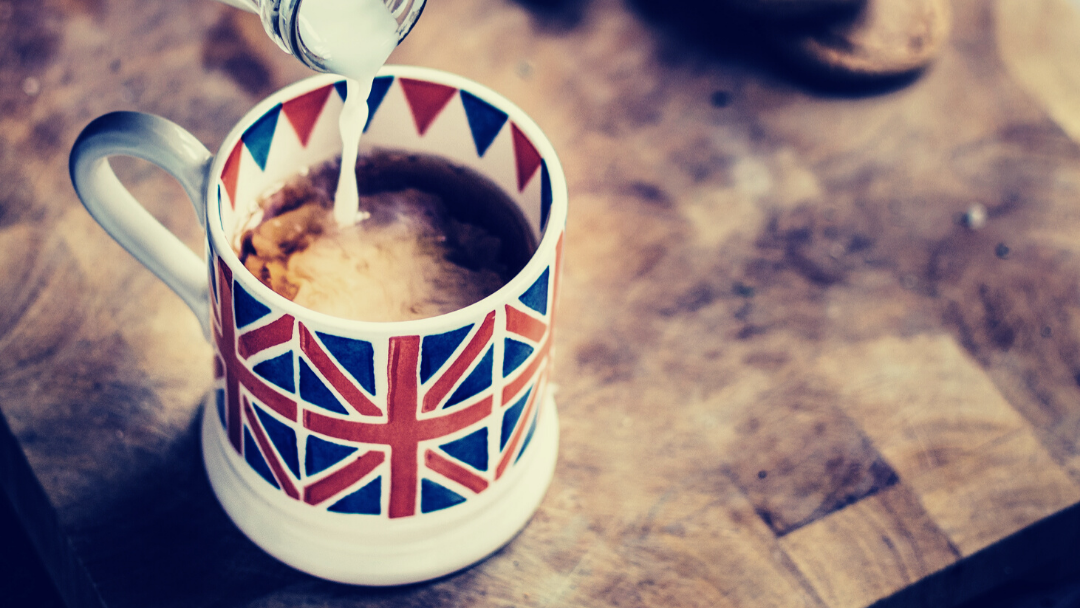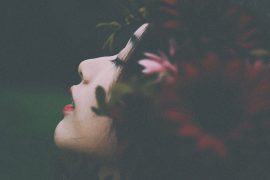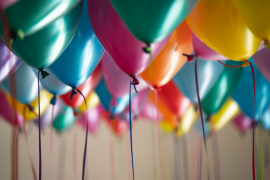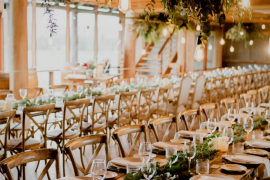MY MOTHER SAYS MY EYES WILL NEVER BE THE SAME. How can they be? The flash of the headlights would be the last thing I’d see in maybe… forever? I think of my name now as sort of a prophecy. Winter. I am not a cat or a dog or a white guinea pig or a favorite type of cookie. Winter. My other sisters are Spring, Summer— and Courtney. Courtney was from my mother’s first marriage. She had a hysterectomy before she could have a Fall. Now, in Winter, my car is t-boned by a Prime Amazon truck. No one was killed. But the truck went up in flames, and some Christmases were ruined. Oh well.
I am not steady on my feet even two months after the accident. My grandmother says my legs are the like a Sherpa’s map of Mt. Everest—all dotted with red bursts and streaks where dead people are found. She didn’t say this to be mean. She said it to make me laugh, and to regale me with stories about her college years when she studied maps and Eastern religions and the way of nomadic peoples. She was brilliant. Not like my mother. My mother believes in fortune-tellers.
I feel at ease when I can go to Barton Springs Pool at night, after nine, when it’s free and all the beautiful, tan revelers from the hot afternoon have gone. At night, I can sink into the deep parts of the 68-degree black water under the moon and feel like I’m flying in an invisible plane. The cold water calms my nervous system. This is what they made sad women do. Hydrotherapy. Maybe it’s what we still do.
My laugh is deep now. I think I have minor brain damage, to be honest because I’ve pulled out my dad’s old comedy albums—Richard Pryor, Steve Martin, George Carlin— and I can barely control my bowels. I mean, I can, but it may become an issue. I used to think comedy albums were a stupid waste of time—something hipsters listened to at their dinner parties on turntables bought at Urban Outfitters. But comedy albums are not stupid. They’re geniuses. The hipsters are onto something.
I want to scream when I think I won’t be able to see again; I worry that when I go to Barton Springs, the people who actually show up at dawn will look at my jacked-up legs or wonder if I can make it into the pool at all as I stumble to the stairs. If I can’t see them, maybe I won’t care. And I don’t have to see to swim in a pool that’s 900 feet long. If I get to the edge, maybe I’ll hit my head, and my sight will come back. That’s how my eyes uncrossed when I was eleven, and I got smacked in the face with a volleyball. I didn’t need glasses after that.
When I cry, I don’t feel any sensations because of the bandages. I used to watch myself in the mirror when I cried. If I watched myself, then my crying wouldn’t last as long. I look super ghoulish when I cry. Now, I don’t care. I just want to know if I’m crying at all. I’m a stranger in my body.
When I remember colors now, they are black, white, and red all over. I have this dream a lot. I’m a stoic white figure walking down the street where my house is. Everything around me is black. Then, a Prime Amazon truck comes racing toward me. Instead, this time, a ginger cat rushes into the street, the truck swerves, kills the cat, there’s red everywhere, and I’m fine. I can see this all unfolding in my mind. I like to sleep now. I didn’t use to.
In my pockets, I keep breath mints because I’m not sure how clean my teeth are. Though my sense of smell has improved, my confidence hasn’t. I also keep a handful of Starbursts. I only like the cherry ones. The other ones I use as fidgets. I shape them into little figures I can leave behind wherever I go.
I go to the café a few blocks from my house. It’s an English café. It has an English theme, an English menu, books by British writers, and they’re always playing The Beatles, David Bowie, The Clash, Queen, Oasis, The Smiths, Joy Division, The Rolling Stones, Genesis. You get the idea.
The place is called Mind the Gap, which I’ve had to do a lot since the accident. I once liked this place because they’d serve proper English tea in mismatched teacups and teapots. They make their own clotted cream, scones, and pasties. There’s a big English union jack on one wall but with neon colors. They have a framed likeness of Jane Austen next to a photo of Sid Vicious. And the doilies. So many doilies. They have little double-decker buses for salt and pepper shakers and an actual suit of armor dressed like Austin Powers next to the bathroom. A lady runs the place in her 60s named Myrtle. She’s from Brighton but has lived in Austin since 1976 when she took in a Willie Nelson gig at the Armadillo World Headquarters. She never left. This is a familiar story for Austinites of her generation.
But now that I’m visually impaired—temporarily or otherwise—I’ve only been back to Mind the Gap once. Of course, it wasn’t the same. I used to watch people and chat up the guy in the kitchen who makes bangers and mash—Luke. I’d come to sketch in my notebook. I draw characters from books I like, various microorganisms, and landscapes. The landscapes always have the same white house in them. It doesn’t matter if it’s a farm scene, an oceanside, a cityscape. There’s always that one house. I don’t know why.
But this last time, I just sat there feeling the edges of their heart-shaped shortbread and rolling the little lumps of sugar around my tongue until they dissolved. I listened to “I’m Still Standing” by Elton John and wondered why I knew all of the lyrics. I liked it now.
I wondered if people were staring at me. I was surprised that I didn’t care. Then Luke came up to me and whispered in my ear.
“Hey, Winter. Your shirt’s on inside out. Did you know that?”
And then he tugged at the tag hanging from the back of my t-shirt.
“What shirt am I wearing?” I asked.
“You don’t know?”
“No, I just grabbed it.”
“It’s red with blue letters, I think.”
“Oh yeah. It’s supposed to say ‘What? Me, nervous?’” Luke laughed.
“It’s really big on you,” he paused. “You’re a lot smaller now.”
Which was his way of saying, “Hey, you finally dropped that thirty pounds. Good for you!” Which is not what he would even say or think. I didn’t want to analyze it. That’s all I used to do. Ruminate like a pro. Every side glance, every tiny bit of body language, every wrinkled-up nose. I knew what people were thinking. And it kept me up at night. I could hear him wiping down the table and collecting what was left of my tea. I took out my phone and called Summer.
“Listen. I know you’ve been dying to do this since forever. But can you take me to the mall? I need some things.”
Then, just a long string of “YAAAAAAASSSS!!!” Annoying.
When we got to the mall, I could smell the food court from the first floor. I wanted eggrolls. But I had to focus.
“There are rules,” I explained. “You can’t buy for you. You HAVE to buy for me.”
“But you’ve lost so much weight since the… well, you can wear things now you couldn’t wear before. Just be open-minded.”
“No. My mind is closed. I can tell if you’re picking something out like capris or lacy tops. You can’t fool me.”
“For someone who doesn’t care, you sure care a…”
“Enough. Where are we going?”
“Nordstrom’s.”
“Hard pass.”
“Then what are we doing here? We might as well go home.”
“Look, I just want some new things that fit, that don’t have stains, that aren’t from before.”
“Well, if you don’t care what you look like, let’s just get, like, a dozen sweats. You can mix and match. It won’t matter. You can be a seven-year-old.”
“I don’t want to suck completely.”
“OK, then can you trust me… just a little?”
I had no idea what my sister picked out for me. But I do know that there were some decent-fitting jeans, some new Doc Martens, some cotton shirts with no collars, but some nice flow to the sleeves, a wool jacket that I wanted to sleep in, and the softest socks I’d ever worn.
Two weeks later, my appointment snuck up on me. The bandages were coming off. I’d know once and for all if my sight would return. I could live with the idea of being in the dark now. My anxiety over every facet of my life had changed. I didn’t look at people’s faces anymore. I didn’t lose sleep over my weight or anyone else’s. I didn’t linger on Luke’s smile or marvel at the way he plated his Full English breakfast. I was an artist. And I didn’t care if I ever saw one of my sketches or anyone else’s ever again. If all I ever saw were light snow in every direction, the prophecy of my name would make sense. It would be Winter all the time. I would be Winter all the time. I could do something else. I could listen and touch and make up stories.
But I knew this feeling wouldn’t last. Acceptance. I’d never mastered it before for myself or anyone else. And that was a problem. I was never organized or efficient like Spring. I was never sunny or optimistic like Summer. And Courtney was a taxidermist, so. How could the many women in a family with no men create such disparate realities? The thought of depending on them made my thoughts spiral to dark places. Maybe I wouldn’t be able to live like this.
I didn’t want anyone to come with me when the doctor removed my bandages. Not my mother. Not my grandmother. Not my sisters. I had my swimsuit on under a jersey knit sundress Summer promised was “charcoal gray” and nothing else. I was going to take a Lyft to Barton Springs afterward either way. I wondered if I’d see the purple and orange sky against the live oaks lining the pool or if a bass or an eel would brush against my feet. Either way, I’d get there before sunset.
J. B. HILL has worked as a reporter in Boston, a screenplay analyst in Los Angeles, and a writer and editor in Austin. Her work has been published, and is forthcoming, in the San Antonio Review, Beyond Words Literary Magazine, The Dillydoun Review, and Coastal Shelf Literary Journal. Hill earned her BFA in Writing, Literature, and Publishing from Emerson College.
Like what you’re reading?
Get new stories or poetry sent to your inbox. Drop your email below to start >>>
OR grab a print issue
Stories, poems and essays in a beautifully designed magazine you can hold in your hands.
GO TO ISSUESNEW book release
China Blue by Catherine Gammon. Order the book of which William Lychack Jeffries calls “a fiery declaration of all that is inexpressible about desire and loss and the need to find a home in a world in which even the most solid and real of things feel often less than completely solid or real.”
GET THE BOOK



